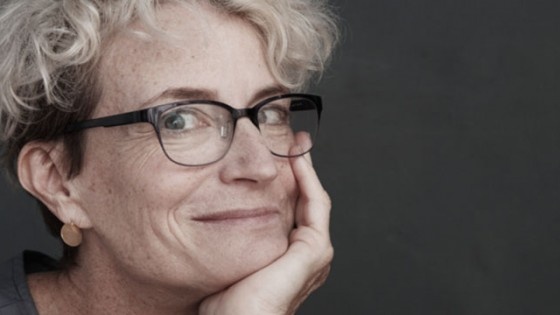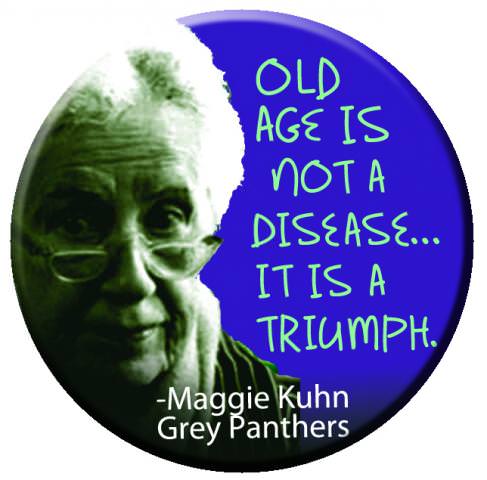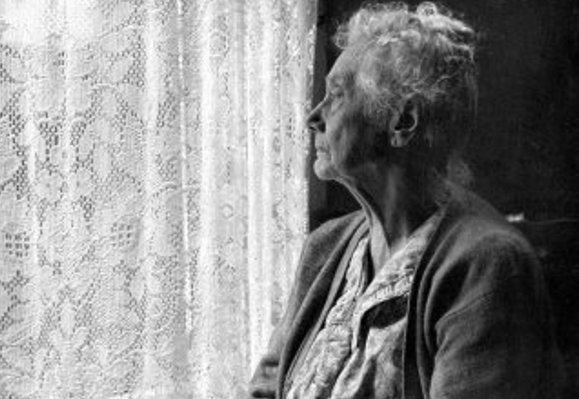Finally the publishing industry is catching on to the fact that America’s swelling aging population isn’t aging like their parents and grandparents and want literature that reflects this new way of growing old. Older women and men want to be affirmed and not negated in their old age.
Ashton Applewhite’s new book, This Chair Rocks: A Manifesto Against Ageism, is the book we’ve all been waiting for. In a well-researched, personable style Applewhite lays forth the persistent stereotypes around aging and then proceeds to dismantle them one by one. In their place she offers positive mindsets. This process is reminiscent of the consciousness raising that empowered women during the second wave of Feminism.

Ashton Applewhite, author of “This Chair Rocks: A Manifesto Against Ageism”
Applewhite insists that we stop looking at aging through the medical model, which reduces old age to a disease! She offers a new narrative that replaces the “deficit model of aging” in favor of “aging as opportunity.”
She supports her perspective by citing interviews with octogenarians, several in their 80’s and 90’s whose minds remain active, who continue to lead lives of purpose and who report high levels of satisfaction. Applewhite concludes: “Those who perceive their time is short typically attach greater emotional meaning and satisfaction in life.”
To make peace with aging, follow Applewhite’s lead and make an inventory of all those ageist stereotypes you’ve internalized and replace them with affirmations. In other words, don’t tell yourself you’re no longer attractive because you have wrinkles. Instead own the beauty in your lined face: the beauty emanating from your hard won experience and wisdom.

Maggie Kuhn, 1970 founder of the Gray Panthers, an early anti-aging spokesperson
Alternatively don’t put down your body because it isn’t as flexible as it once was and/or now has its share of aches and pains. Find new, less challenging ways to be physically active—perhaps adding a meditative component to your reduced exercise schedule to fit this more spiritual stage of life. (I love my walking meditations, something my former power walks didn’t lend themselves to.)
Applewhite cautions against buying into the media’s stories of older people who still do marathons, sky dive, and hike the Himalayas. She calls them outliers, held up to perpetuate the myth that age is only a number. Outliers can discourage us average aging beings. Outliers are age deniers.

An older woman experiencing Applewhite’s “independence trap”
Another way the culture traps older adults is by perpetuating the myth of “rugged individualism.” Applewhite calls this the “independence trap,” labeling it “an unrealistic ideal of self determination.”
It serves to isolate older adults, leaving them hesitant to reach out for help when they become ill or need assistance with everyday chores. How often have you heard older adults say? “I don’t want to be a burden to anyone.” Who says you’re a burden if you reach out? You’re simply relying on the goodwill of your community of family and friends. (Reminder: ample reframing is essential to aging positively.)
Other aging misconceptions Applewhite addresses are the notion that sex and intimacy wane; that older adults are useless once they retire; and that they live in morbid fear of death. I was heartened by her finding that the older one is often the more accepting of death they are.

Adelaide, 90. and Connie, 80–two of my favorite older women who live with an acceptance of death
Let’s all join Ashton Applewhite’s radical aging movement, claiming our very best selves for our last chapter. We can be role models for generations to come and give new meaning to the term ‘aging with dignity!’
If you’d like more conversation with like-minded women, we have a Facebook page for you: WOW (Women’s Older Wisdom)